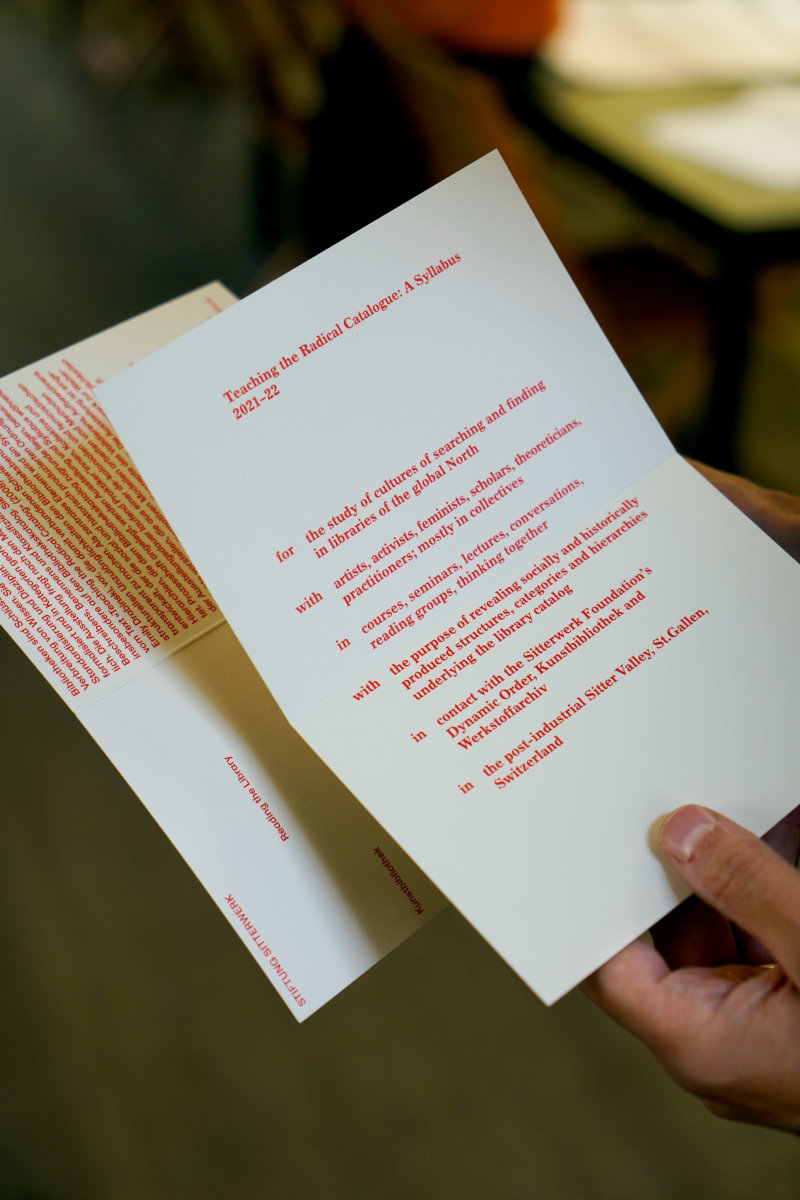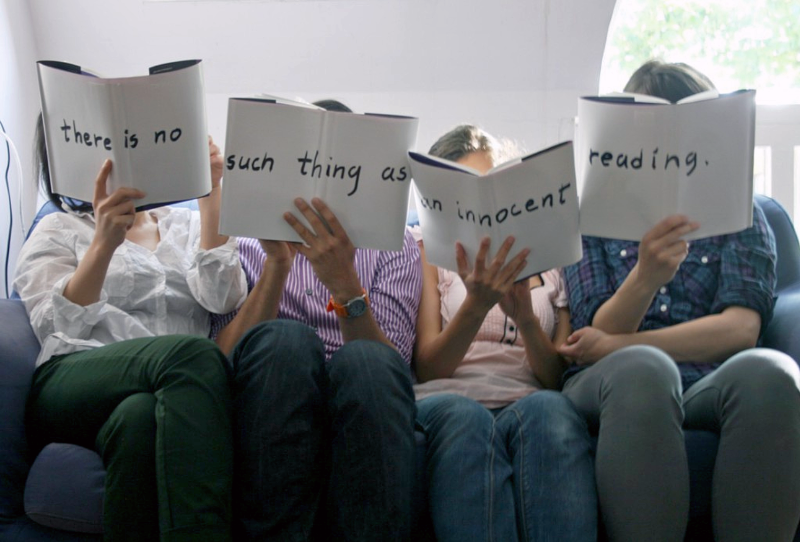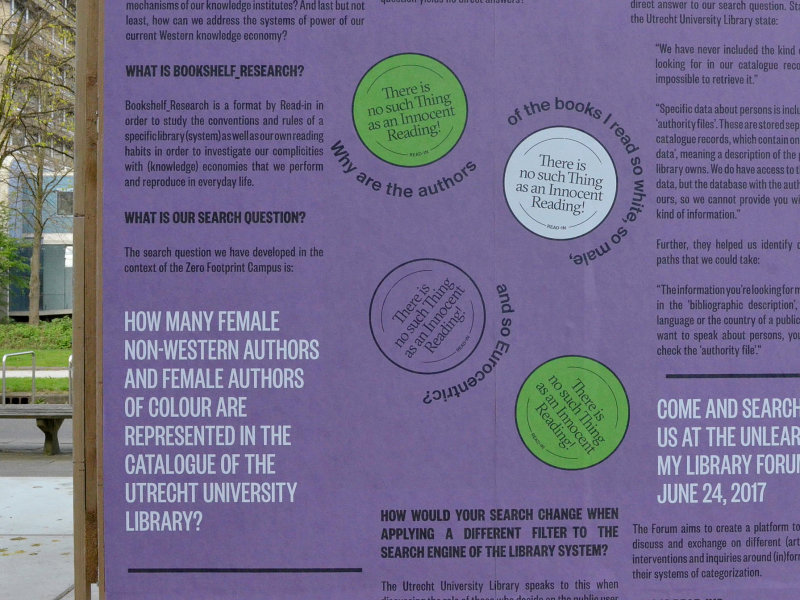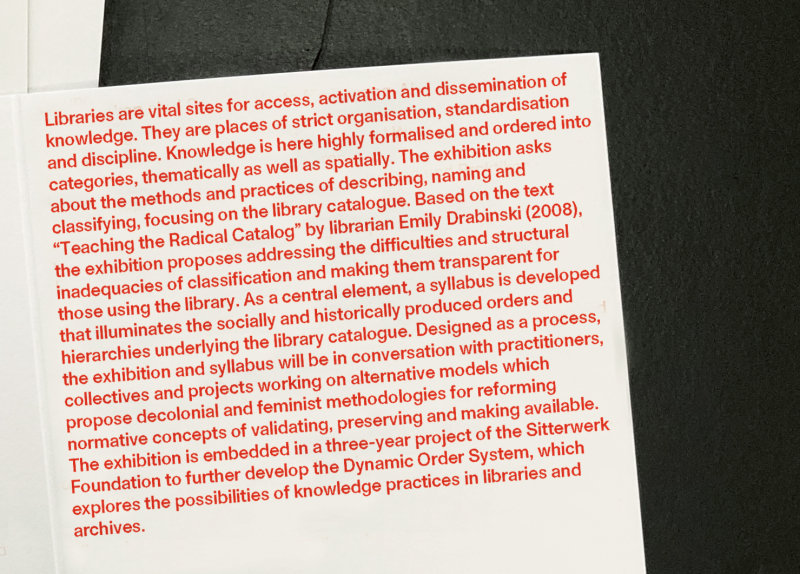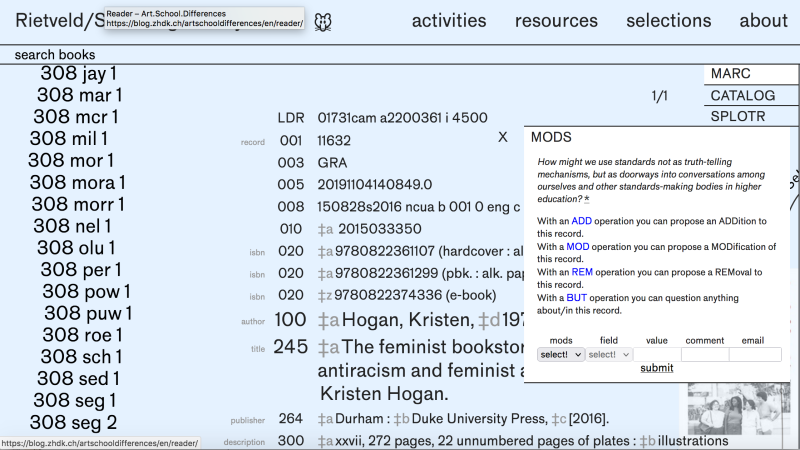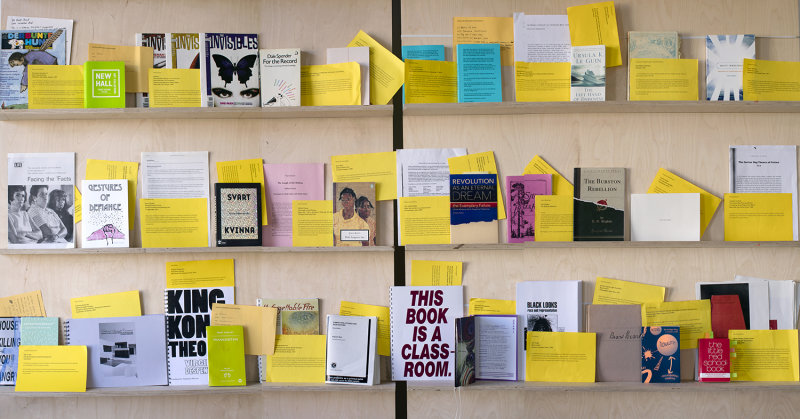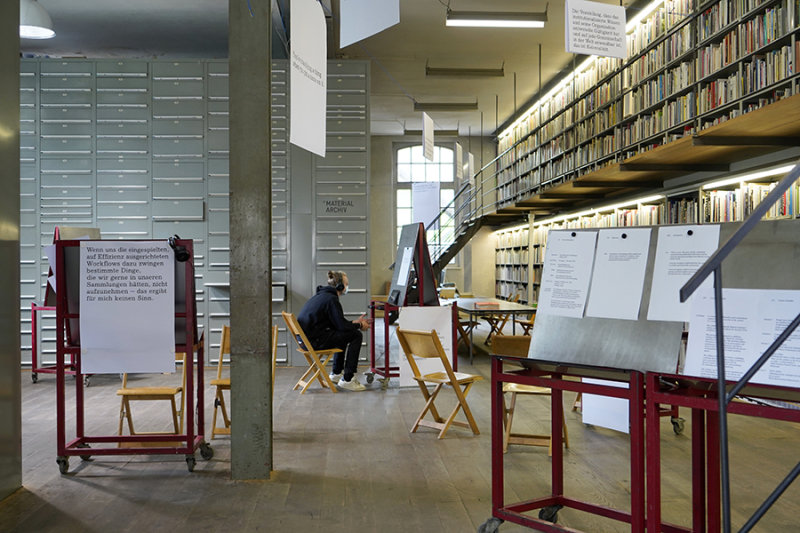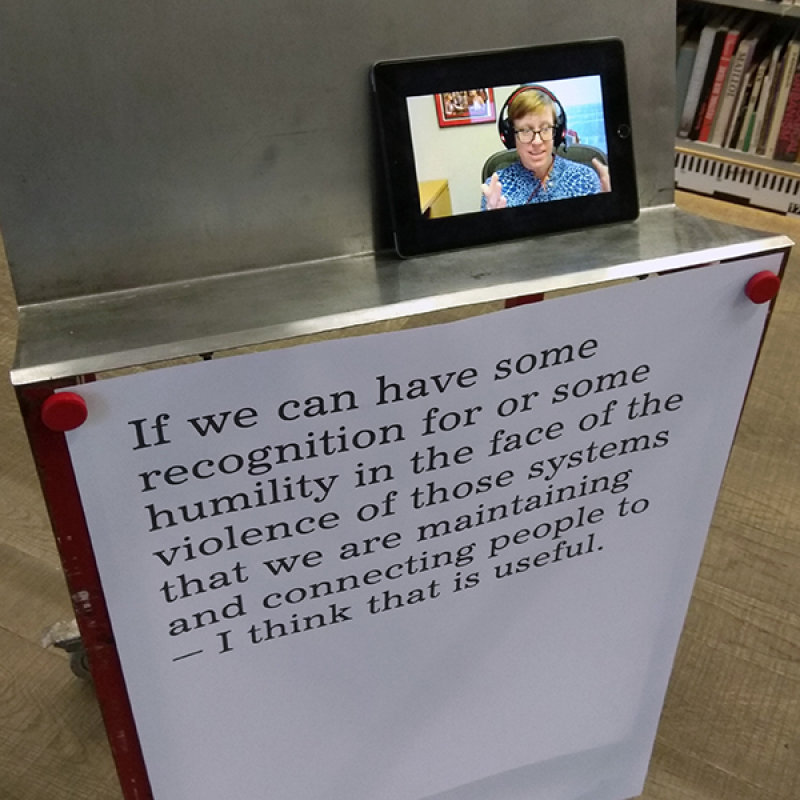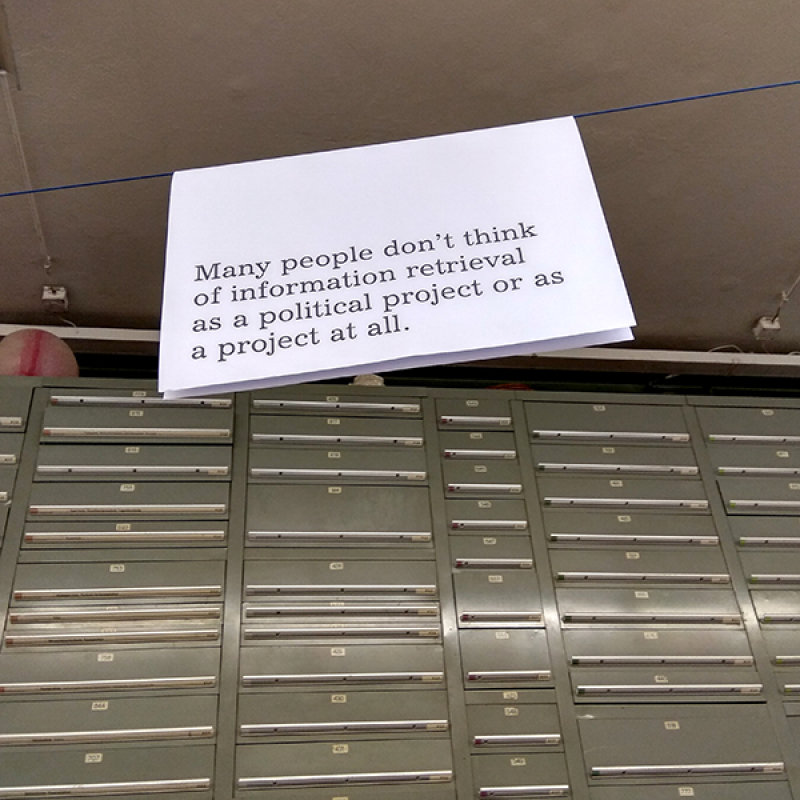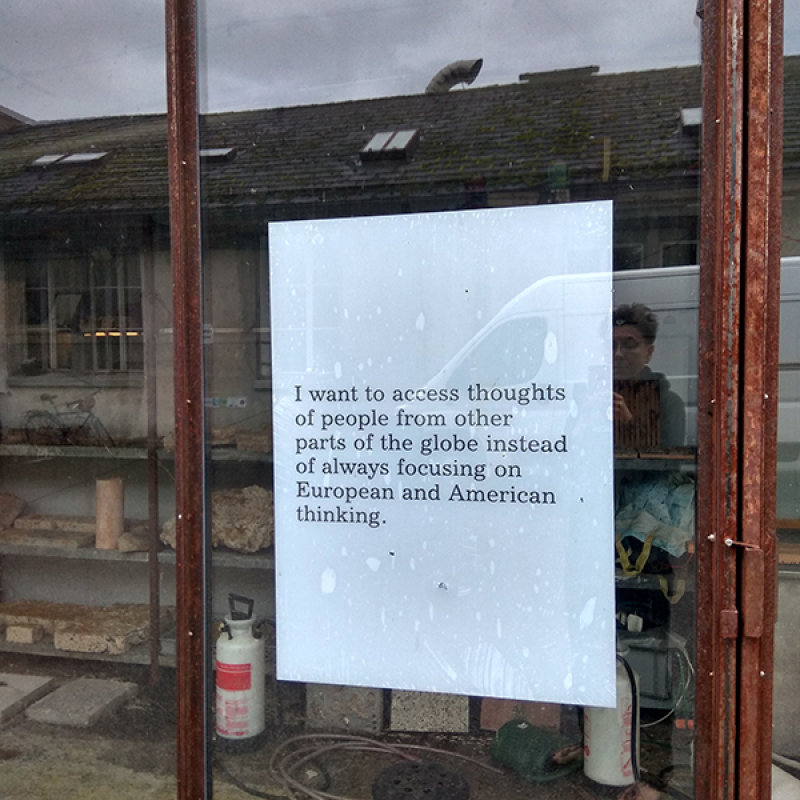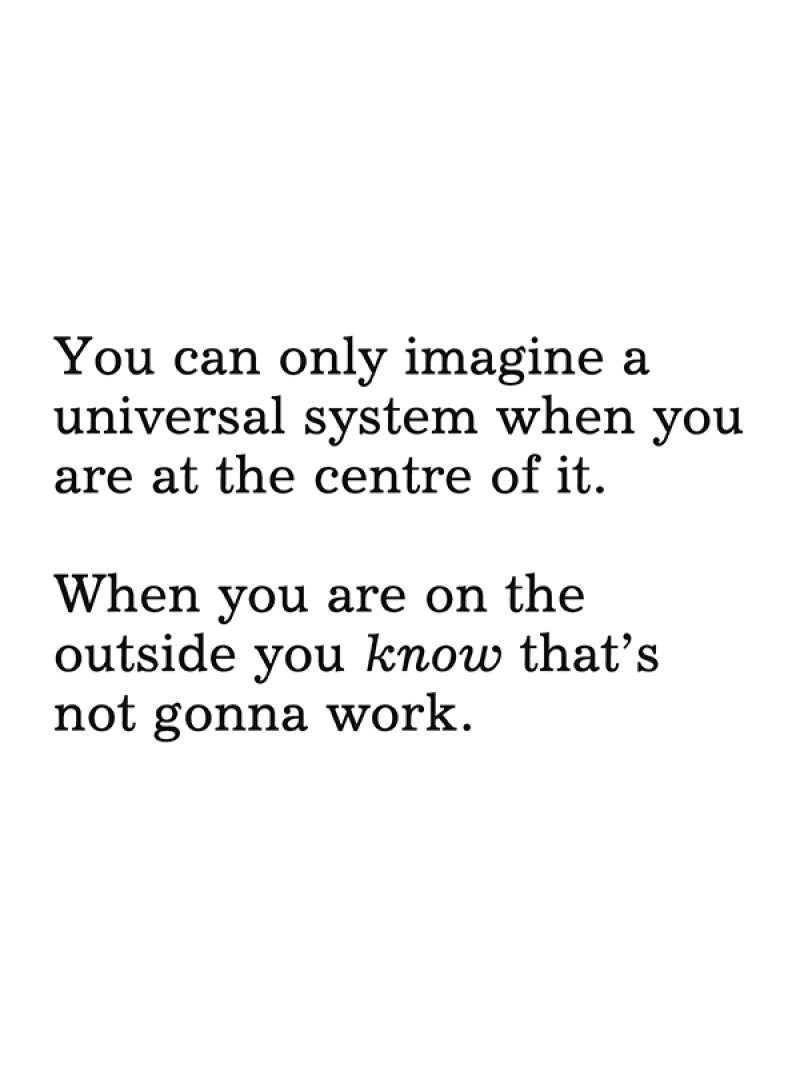Reading the Library
An exhibition on feminist and de-colonial approaches to systems of ordering knowledge
Whether a collection of print media or a digital archive, a library is a key place for accessing, activating, and disseminating knowledge. Typically, a library is a highly classified space that formalises and organises knowledge into categories – both intellectually and spatially. The exhibition “Reading the Library” interrogates the prevailing methods and practices of describing, naming, and classifying knowledges and focuses in particular on the library catalogue. The library catalogue reflects these categories and attempts to represent existing contents in the form of records to enable the books to be searched and found. A library is thus a place of strict organisation, standardisation, and discipline. The classification systems widespread in the global North typically pursue the liberal approach structured on the basis of equality or sameness. The problem of equality, however, is its homogenising presumption that the same model will be universally applicable. Moreover, the implicit function of naming denotes delimiting one thing from the other. Such delimitations are, however, inherently based on particular cultural perspectives—and inevitably result in distortions, exclusions, and marginalisations.
Because these structural problems of describing, naming, and classifying in the library cannot be resolved entirely, the librarian Emily Drabinski proposes in her text “Teaching the Radical Catalog” (2008) to focus on making these structural weaknesses visible and on mediating and discussing them with the library users. Drabinski’s text is the starting point for the exhibition at the Sitterwerk Foundation, which makes various cultures of searching and finding visible in a creative, exploratory way. Matthias Gabi (CH) takes up the tradition of historical, hand-written library catalogues by creating a register of advertisements found in exhibition catalogues. Delphine Chapuis-Schmitz (CH) makes use of the library as a field of experimentation and, during the exhibition, will put together a performative reading that she will present at the finissage. As a central element in the exhibition, Eva Weinmayr (UK) and Lucie Kolb (CH) will be developing a syllabus. As a document that instigates discovery and learning within an educational context, this syllabus aims to reveal the socially and historically produced orders and hierarchies that underlie library catalogues. This syllabus will grow during the exhibition and will include conversations with practitioners and collectives currently working on alternative models proposing de-colonial and feminist methodologies for changing normative concepts of validating, preserving, and making available diverse knowledges. The syllabus will include contributions by Amanda Belantara (US), Emily Drabinski (US), Feminist Search Tools (NL), Infrastructural Manoeuvres (NL, BE), Élodie Mugrefya (Constant, BE), The Rewrite (CH), Nora Schmidt (AT), Femke Snelting (Constant, BE), and Bibliothek Wyborada (CH).
The Kunstbibliothek of the Sitterwerk Foundation pursues a wide range of approaches that critically engage with knowledge-related practices in libraries. On the one hand, it introduced a dynamic order of the books facilitated by radio frequency technology (RFID), enabling users to arrange the books on the shelves as they see fit to produce new relationships between the books. With the Werkbank , a sensitive table that captures the books and materials placed on it and depicts them digitally, it is also possible to put the two collections of the Kunstbibliothek and the Werkstoffarchiv in relation to one another, to situate them thematically, and to supplement them with one’s notes, images, or commentaries. All of these tools enable users to create new access points to the contents.
In a three-year project, the Sitterwerk Foundation now further develops and interrogates new possibilities for establishing alternative approaches to knowledge in the library: The event series “Finders Keepers” shed light on the potential of users for the library. The workshop series “Kunst Produktion Sprache” focused on keywording and explored the possibility of a site-specific vocabulary. Both events questioned the construction of systems of order and their influence on the production of knowledge. These past activities form the framework for the current exhibition “Reading the Library”, which will examine knowledge practices in libraries from a de-colonial and intersectional feminist perspective.
Concept and realisation: Barbara Biedermann, Lucie Kolb und Eva Weinmayr
With contributions by Amanda Belantara (US), Delphine Chapuis-Schmitz (CH), Emily Drabinski (US), Feminist Search Tools (NL), Matthias Gabi (CH), Infrastructural Manoeuvres (NL, BE), Constant (BE), The Rewrite (CH), Nora Schmidt (AT), Eva Weinmayr (UK), Bibliothek Wyborada (CH)
The regularly updated syllabus can be viewed and read online on https://syllabus.radicalcatalogue.net
Opening:
August 29, 2021, 2–5 p.m.
3 p.m.: A Syllabus (I), Lucie Kolb and Eva Weinmayr
4 p.m.: Lecture-Performance, Matthias Gabi
Finissage:
November 7, 2021, 2–5 p.m.
3 p.m.: A Syllabus (II), Lucie Kolb, Eva Weinmayr, Roland Früh, and Bibliothek Wyborada with Karin K. Bühler, Ruth Erat, and Marina Schütz
4 p.m: I Wouldn't Stopp Looking for Cracks, Performative Reading, Delphine Chapuis-Schmitz
The exhibition is generously supported by the Canton of St. Gallen Kulturförderung / Swisslos, UBS Culture Foundation, Ernst Göhner Foundation, Steinegg Stiftung, Straubenzeller Fonds and Lienhard Foundation.
